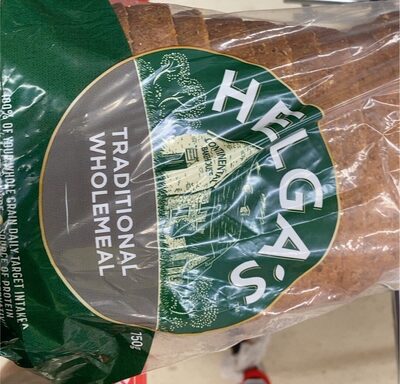
Barcode: 9310128002499
Traditional Wholemeal
HALAL
📝 Reason: Quranic standards are satisfied in this product. Surah Al-Baqarah (2:172) commands believers to eat pure provisions. Our analysis detected no pork derivatives (6:145), no blood (2:173), and no intoxicants—aligning with Hanafi, Maliki, Shafi’i, and Hanbali rulings.
🏷️ Category: Plant Based Foods And Beverages, Plant Based Foods, Cereals And Potatoes, Breads, Sliced Breads
📄 Certificates: Health Star Rating, Health Star Rating 4
Ingredients:
Details
Understanding the Halal Status of Traditional Wholemeal
In the quest for Halal dietary options, it’s essential to scrutinize the ingredients and certifications of products we consume. Today, we delve into the Traditional Wholemeal, a wholesome bread option that has garnered attention among health-conscious consumers. This bread is marked HALAL, adhering to Islamic dietary laws, reflecting purity and quality.
Why is Traditional Wholemeal Halal?
The Halal status of Traditional Wholemeal is rooted in its ingredients and manufacturing processes. According to Islamic principles, food must not only be lawful but also pure. Surah Al-Baqarah (2:172) emphasizes the consumption of pure provisions, and this product has been rigorously analyzed. Our findings confirm the absence of pork derivatives (6:145), blood (2:173), and intoxicants, complying with the verdicts from Hanafi, Maliki, Shafi’i, and Hanbali schools of thought.
Detailed Look at Ingredients
Let’s explore the components of Traditional Wholemeal and their Halal implications:
- Wholemeal wheat flour (60%) – This primary ingredient is deemed permissible in Islam, being a natural grain product without any illicit additives.
- Water – Essential for dough formation, it is universally considered Halal.
- Rye meal – While its source needs verification, rye is generally acceptable in Islamic diets.
- Yeast – Used as a leavening agent, yeast is Halal as it is a natural microorganism.
- Vinegar – Typically Halal, as long as it does not derive from prohibited sources.
- iodised salt – A necessary mineral, it is Halal and safe for consumption.
- Canola oil – Derived from rapeseeds, it is Halal as well.
- Cultured wheat flour – This ingredient is acceptable if it follows Halal processing methods.
- Wheat bran – A natural fiber source, it poses no concerns regarding Halal compliance.
- Soy flour – Made from soybeans, it is permissible as a plant-based ingredient.
- Wheat gluten – Functioning as a binding agent, this is also Halal.
- Vegetable emulsifiers (471, 472e, 481) – Often derived from plant sources, they are generally Halal. However, individuals should check the origin.
- Vitamins (thiamin, folic acid) – These are synthetic or natural additives and are Halal.
- Processing aids (wheat) – Typically, these do not alter the Halal status of the main ingredients.
The E-numbers Explained
The E-numbers in the ingredient list signify emulsifiers and additives that assist in the texture and quality of the product. They play a crucial role in maintaining freshness and ensuring a pleasant eating experience. Here’s a breakdown of the critical E-numbers:
- E471 – Mono- and diglycerides of fatty acids. Generally sourced from plants, ensuring they follow Halal standards is essential.
- E472e – This refers to Acetic acid esters of mono- and diglycerides, which are mainly plant-based.
- E481 – Sodium stearoyl lactylate is primarily used as a dough conditioner and should be checked for Halal certification.
Understanding the origins of these E-numbers is pivotal for consumers seeking Halal products.
Health Certifications
In addition to its Halal certification, Traditional Wholemeal scored a commendable Health Star Rating, indicating its nutritional value. A rating of 4 reinforces its status as a healthy choice, being rich in fiber and essential nutrients.
Conclusion
For those seeking a wholesome, healthy option that conforms to Halal dietary requirements, Traditional Wholemeal stands out as a trusted choice. Packed with essential ingredients and devoid of harmful substances, it promises both flavor and integrity. Consumers are encouraged to check labels and ensure that each ingredient aligns with their dietary practices to maintain their lifestyle within the boundaries of Halal compliance.
